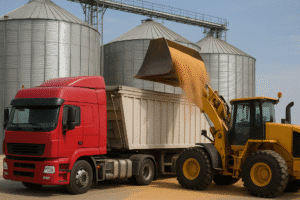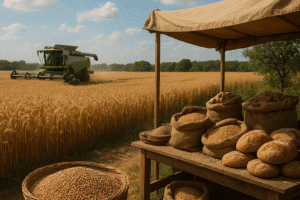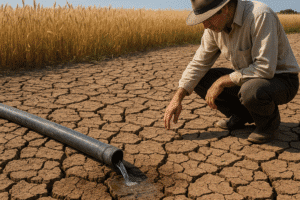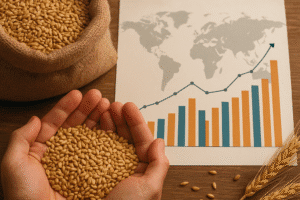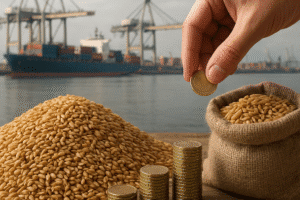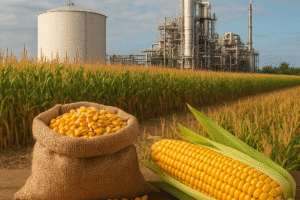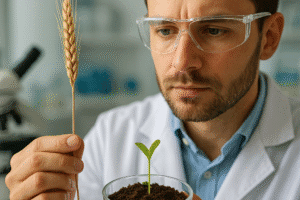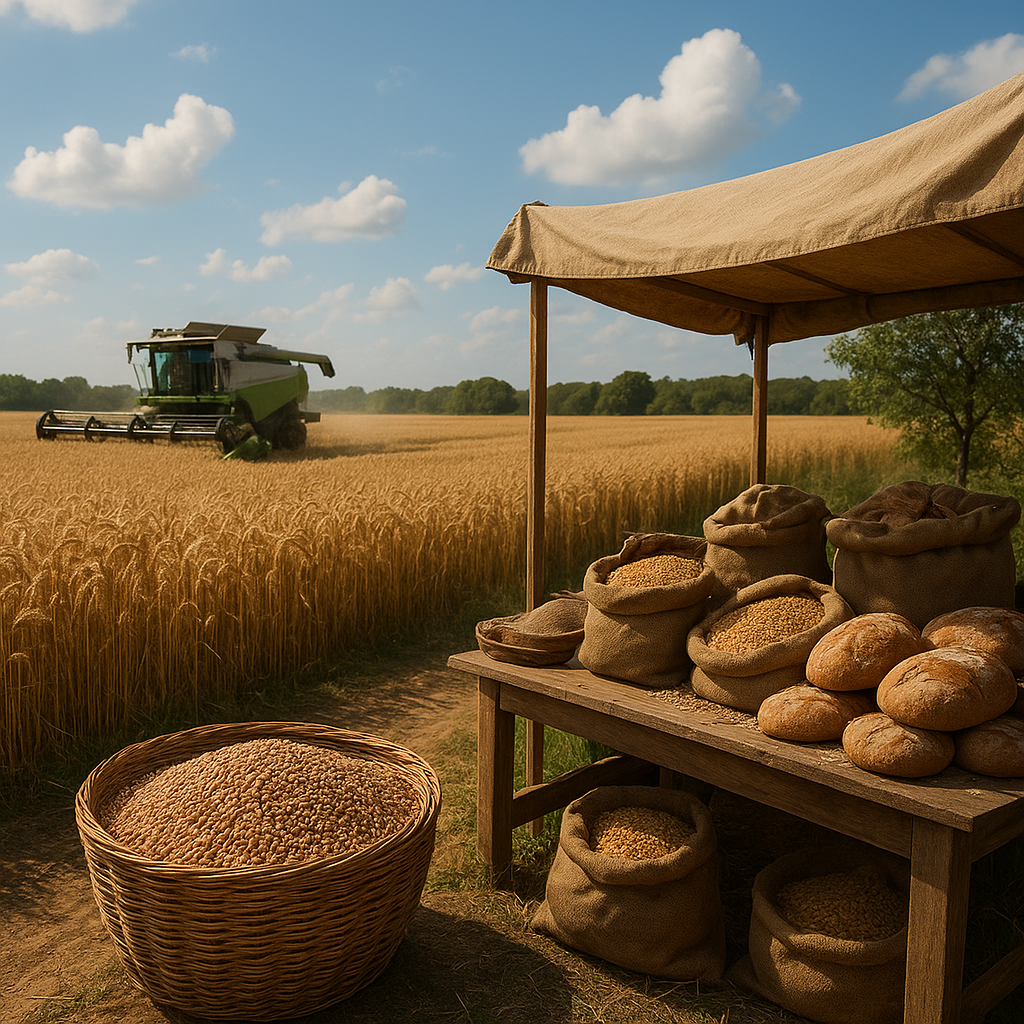The grain market is undergoing a significant transformation as startups leverage technology and innovative practices to address the challenges faced by traditional players. These new entrants are not only enhancing efficiency but also promoting sustainability and transparency in the grain supply chain. This article explores the various ways startups are innovating in the grain market space, focusing on technology integration, sustainable practices, and market accessibility.
Technology Integration in Grain Production
One of the most notable trends in the grain market is the integration of advanced technologies that streamline production processes and improve yield. Startups are at the forefront of this movement, utilizing data analytics, artificial intelligence (AI), and the Internet of Things (IoT) to optimize farming practices.
Precision Agriculture
Precision agriculture is a farming management concept that uses information technology to ensure that crops and soil receive exactly what they need for optimum health and productivity. Startups are developing tools that allow farmers to monitor their fields in real-time, using sensors and drones to collect data on soil moisture, nutrient levels, and crop health. This data-driven approach enables farmers to make informed decisions, reducing waste and increasing yields.
- Soil Health Monitoring: Startups are creating sensors that analyze soil composition and health, providing farmers with actionable insights to improve soil fertility.
- Crop Monitoring Drones: Drones equipped with high-resolution cameras and sensors can survey large areas quickly, identifying issues such as pest infestations or nutrient deficiencies.
- Data Analytics Platforms: These platforms aggregate data from various sources, offering predictive analytics that help farmers plan their planting and harvesting schedules more effectively.
Blockchain for Transparency
Another area where startups are making significant strides is in the use of blockchain technology to enhance transparency in the grain supply chain. By providing a decentralized ledger of transactions, blockchain can help track the journey of grains from farm to table, ensuring that all parties involved in the supply chain have access to accurate and tamper-proof information.
- Traceability: Consumers are increasingly interested in knowing where their food comes from. Startups are using blockchain to provide detailed information about the origin of grains, including farming practices and processing methods.
- Fair Trade Practices: Blockchain can help ensure that farmers receive fair compensation for their products by providing transparent pricing and transaction records.
- Reducing Fraud: By creating a secure and transparent record of transactions, blockchain can help reduce instances of fraud in the grain market, protecting both producers and consumers.
Sustainable Practices and Environmental Impact
As the world grapples with climate change and environmental degradation, startups in the grain market are prioritizing sustainability. These companies are developing innovative practices that not only enhance productivity but also minimize the ecological footprint of grain production.
Regenerative Agriculture
Regenerative agriculture is an approach that focuses on restoring and enhancing the health of ecosystems. Startups are promoting practices such as cover cropping, crop rotation, and reduced tillage, which help improve soil health and biodiversity.
- Cover Cropping: By planting cover crops during the off-season, farmers can prevent soil erosion, improve soil structure, and enhance nutrient cycling.
- Crop Rotation: Rotating different crops in a field can break pest and disease cycles, reduce the need for chemical inputs, and improve soil fertility.
- Reduced Tillage: Minimizing soil disturbance helps maintain soil structure and health, leading to better water retention and reduced erosion.
Water Conservation Technologies
Water scarcity is a pressing issue in many agricultural regions. Startups are developing technologies that promote efficient water use in grain production, such as drip irrigation systems and moisture sensors that optimize irrigation schedules.
- Drip Irrigation: This method delivers water directly to the plant roots, minimizing evaporation and runoff, and ensuring that crops receive the right amount of water.
- Soil Moisture Sensors: These sensors provide real-time data on soil moisture levels, allowing farmers to adjust their irrigation practices based on actual needs rather than estimates.
- Rainwater Harvesting: Some startups are promoting systems that capture and store rainwater for agricultural use, reducing reliance on groundwater and improving sustainability.
Market Accessibility and Empowerment
Startups are also focused on improving market accessibility for smallholder farmers, who often face significant barriers in accessing markets and resources. By leveraging technology and innovative business models, these companies are empowering farmers and enhancing their economic prospects.
Digital Marketplaces
Digital marketplaces are emerging as a powerful tool for connecting farmers directly with buyers, eliminating intermediaries and ensuring better prices for producers. Startups are creating platforms that allow farmers to list their products, negotiate prices, and manage transactions online.
- Direct-to-Consumer Sales: Farmers can sell their grains directly to consumers, increasing their profit margins and fostering a closer connection with their customers.
- Access to Information: These platforms often provide farmers with valuable market insights, helping them make informed decisions about pricing and production.
- Community Building: Digital marketplaces can foster a sense of community among farmers, allowing them to share knowledge and resources.
Financial Technology Solutions
Access to financing is a major challenge for many smallholder farmers. Startups are addressing this issue by offering innovative financial technology solutions that provide farmers with the capital they need to invest in their operations.
- Microloans: Some startups are providing microloans tailored to the needs of small farmers, allowing them to purchase seeds, equipment, and other essential inputs.
- Insurance Products: Innovative insurance solutions are being developed to protect farmers against crop failures due to adverse weather conditions or market fluctuations.
- Financial Education: Many startups are also focusing on educating farmers about financial management, helping them make better decisions regarding investments and savings.
Conclusion
The grain market is witnessing a wave of innovation driven by startups that are reshaping the landscape of agriculture. Through the integration of technology, sustainable practices, and improved market accessibility, these companies are not only enhancing productivity but also promoting a more equitable and environmentally friendly grain supply chain. As these trends continue to evolve, the future of the grain market looks promising, with startups playing a crucial role in driving positive change.
